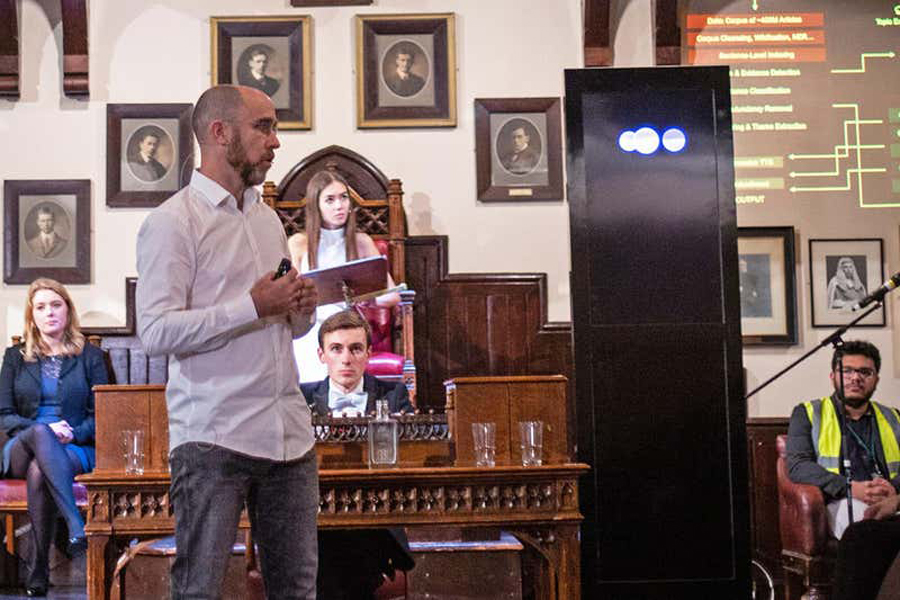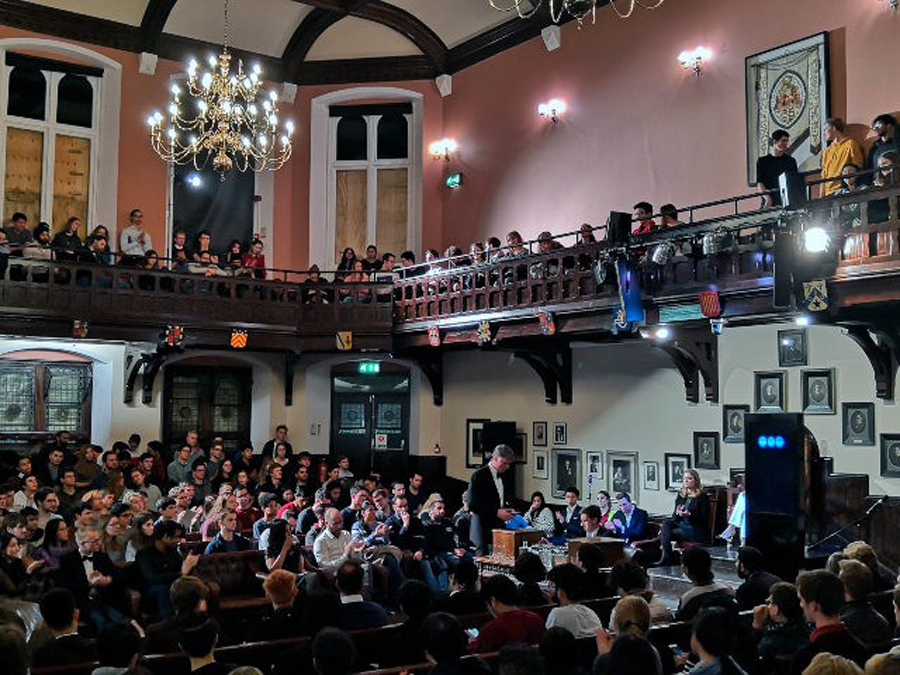
Cambridge hosted a two-hour debate over the potential dangers of artificial intelligence. The protector was the IBM Project Debater. Using her arguments and breaking down the arguments of her opponents, she managed to prove to the audience that in the end, AI would bring more benefit to society than harm.
The discussion took place at Cambridge Union, a 200-year-old debate society. It has hosted hundreds of world leaders and renowned scholars with debates about politics, history or culture. But such a guest was with society for the first time: a two-meter black panel speaking with a robotic female voice.
The Project Debater model trained on more than 30,000 arguments rated by reviewers for their level of credibility. So she learned to recognize which arguments work better than others, and how to build strong evidence. Noam Slonim, a project manager at IBM, says one of the ideas for further research now is to disassemble this model and understand why people find some arguments more compelling than others.
Now Project Debater stores a database of 400 million articles, which he can interpret in his own words, discussing about 100 different topics. Before the debate, the machine looked at over 1,100 arguments and AI questions sent to the IBM website a week before the event. She identified 570 of them in the “For” category, and 511 in the “Against” category. Some arguments were dismissed as irrelevant.

The robot spoke immediately for both positions, plus two people from each side helped him, supplementing the arguments or asking questions. The machine used speech recognition AI to listen and analyze the arguments of its opponents. Each time it took several minutes, but the Project Debater actually answered directly the questions raised.
Quite ironic was the opening remarks of the machine. She started from the “against” side:
Artificial intelligence can do much harm to humanity. He will not be able to make a morally correct decision in the new situation. Because the presence of morality is a unique feature of man.
The robotess spoke clearly and consistently, but still a few blunders happened. A couple of times she repeated the same argument - for example, speaking about the AI's ability to perform boring and repetitive tasks. On several occasions, the machine did not argue in support of its theories at all, as if considering its words as facts.
Still, describing the potential benefits of AI, the machine seemed to be confused, which side it now stands for, and began to contradict itself:
Artificial intelligence will create new jobs, give people more creative activities, increase work efficiency. In the areas of patient care or children's education, there will no longer be a need for people here.
As a result, the party “For AI” won. Of the three hundred people in the audience, 51.22% voted for it.
Prior to this, in February, Project Debater already entered into a dispute with people - competing with Harish Natardzhan, a record debater who is considered one of the best in the world in the field of debate, the finalist of the 2016 World Cup. AI was disconnected from the Internet, it took 15 minutes to prepare, much attention was paid to the refutation of the opponent’s arguments. Then the car was defeated. The audience decided that although the accuracy and richness of information in AI was higher, the person spoke more fieryly, and in general sounded more convincing.

The IBM team began to develop Project Debater after the Watson computer defeated the participants in the Jeopardy quiz game (American "Own Game"). Now the system is six years old. According to them, over the past six months, the car has shown very good growth, and is now ready to discuss with anyone.
Project Debater is the first AI-system that can convince people on the most difficult issues. She digests a huge mass of texts, builds a well-structured speech on a given topic, clearly submits it and refutes the arguments of her opponent. In the end, such a machine will help people reason, providing compelling, evidence-based arguments and discarding emotions.
IBM plans to use artificial intelligence to gather opinions from a large number of people, for example, at conferences or political rallies. The machine quickly determines the arguments for which side this or that person leads. The government and large companies will be able to use it in opinion polls - before making important decisions.
This technology can help us establish an interesting and effective channel of communication between managers and those people who will be affected by their decisions. Finally, we had the opportunity to look at the issue with an open mind, without personal attachments.
IBM also expects that such an AI will help her with the creation of more competent virtual digital assistants.
